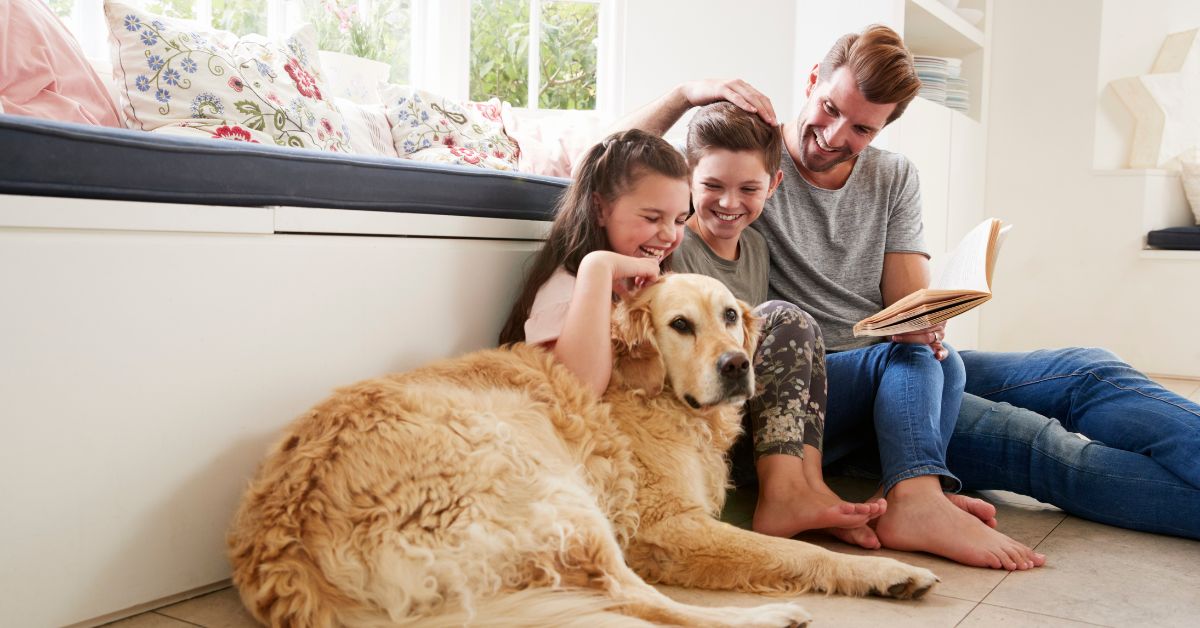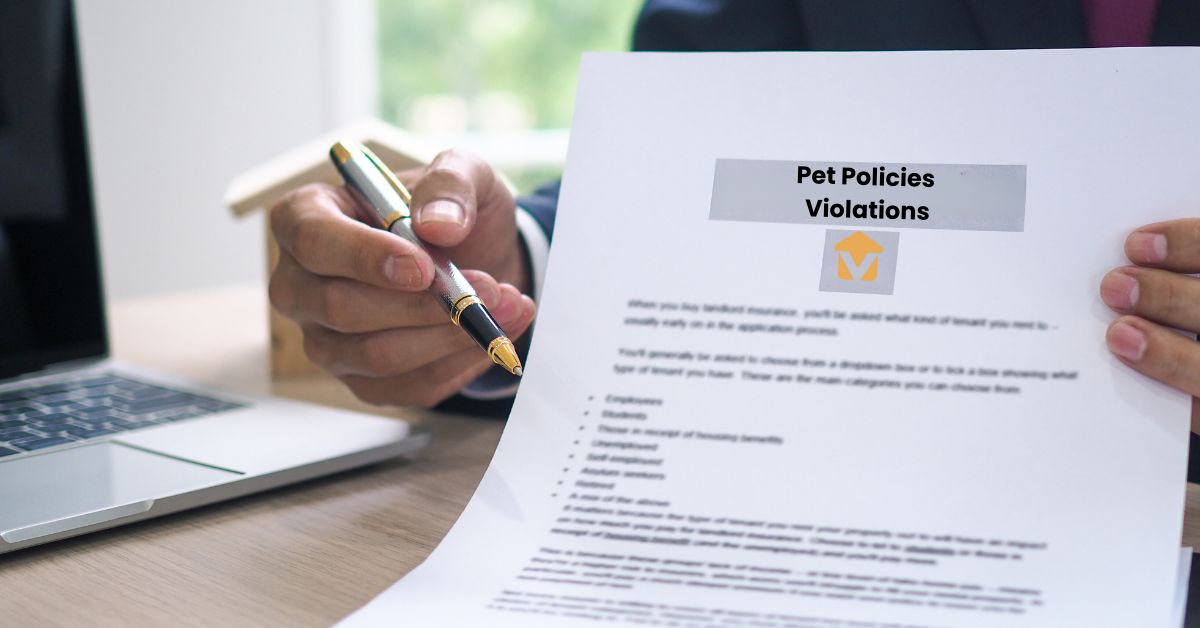This crucial resource aims to equip new landlords with the essential knowledge and tools to craft, communicate, and enforce effective pet policies in their rental properties. Dive into the world of pet policies, explore its basics, understand the pros and cons of allowing pets, and learn the art of drafting a fair and transparent pet policy. This guide also provides insights into handling policy violations and underscores the significance of open communication with tenants regarding pet policies. Embark on this journey to ensure a harmonious, legally compliant, and pet-friendly rental environment for all.

Understanding the Basics: What is a Pet Policy?
As a new landlord, one of the first things you’ll need to consider is whether or not you’ll allow tenants to bring pets into your rental property, and under what conditions. This is where the pet policy comes into play. A pet policy is a set of rules and regulations regarding pet ownership in a rental property and is often part of the lease agreement. It outlines what types of pets are allowed, if any, and includes specifications about breeds, sizes, and numbers.
Why is having a pet policy so crucial? First, it provides clear guidelines for tenants, ensuring they know the rules regarding pets on the property. This can help to prevent potential issues and misunderstandings, leading to a more harmonious landlord-tenant relationship. A well-crafted pet policy also protects the property itself. It allows you to set standards for pet behavior and responsibility, helping to minimize damage to the property and ensuring it is well-maintained for future tenants.
For instance, your pet policy might detail pet fees or deposits to cover potential damages, specify areas where pets are allowed or not allowed, and outline the expectations for pet behavior and waste disposal. It's crucial to create a policy that is fair and reasonable, keeping in mind both the welfare and rights of the animals and the preservation of your property.
Furthermore, a clear pet policy is an essential legal safeguard. It establishes your rights as a landlord to enforce rules regarding pets and provides a basis for eviction or fees if the policy is violated. It's important to ensure your pet policy complies with federal, state, and local laws regarding pets and housing, including regulations about service and emotional support animals.
In conclusion, understanding and establishing a clear, comprehensive pet policy is an indispensable step for new landlords. It not only helps to protect your property and avoid potential legal issues but also plays a significant role in creating a positive, straightforward relationship with your tenants, ensuring that expectations and rules regarding pets are clear from the start.

Pros and Cons: Allowing Pets in Your Rental Property
As a new landlord, deciding whether to allow tenants to bring pets into your rental property can be a significant decision. This choice comes with its share of both benefits and drawbacks. Understanding these pros and cons is crucial to making an informed decision that best suits your property management approach.
Allowing Pets Pros:
Wider Tenant Pool: Allowing pets can significantly broaden your potential tenant pool. According to various surveys, half or more of all tenants have pets, and a pet-friendly policy will make your property more attractive to this demographic.
Higher Rent: Landlords can often charge higher rent for pet-friendly properties. You might also consider additional fees or deposits specifically related to pet ownership, potentially increasing your rental income. If you have a property manager (such as Revolution), many of them will offer a “Pet Damage Guarantee” that will protect you against the costs of repairing pet damage.
Longer Tenancy: Tenants with pets may be more likely to keep renewing their lease rather than going through the hassles of finding another pet-friendly landlord. The challenge of finding pet-friendly accommodations can lead pet owners to stay put for longer periods, reducing vacancies and tenant turnover.
Allowing Pets Cons:
Potential for Damage: Pets can cause damage to the property, from minor wear and tear like scratched floors to significant damage such as chewed carpets or doors. This could necessitate costly repairs and maintenance. As mentioned above, using a property manager with a pet damage guarantee can solve this problem.
Noise and Nuisance: Pets, especially dogs, can cause noise disturbances or other nuisances to neighboring tenants or properties. Addressing these issues can require time, effort, and diplomacy on your part. This is obviously a more important consideration in multifamily investment properties where tenants live closer together.
Allergy Issues: Future tenants may be allergic to pet dander, making it difficult to rent out the property after a pet-owning tenant leaves. Thorough cleanings are a necessity.
Insurance and Liability Concerns: Some insurance companies charge higher premiums for pet-friendly properties, and landlords may be liable for any harm caused by a tenant's pet. Check your insurance policy for any restrictions.
While permitting pets can enhance the attractiveness of your property and potentially bring in higher revenue, it's not without challenges such as potential property damage, noise complaints, and increased insurance costs. It's crucial to weigh these factors and consider your local market conditions, property type, and personal tolerance for risk before establishing your pet policy. Moreover, if you decide to allow pets, a clear and detailed pet policy is essential to outline the responsibilities and expectations for pet-owning tenants, helping to mitigate potential issues and ensure a positive, profitable rental experience.

Drafting a Fair and Clear Pet Policy: Tips and Examples
Creating a fair and clear pet policy is crucial to avoid misunderstandings and ensure both landlords and tenants are on the same page regarding pet ownership in a rental property. Here are tips and examples to guide you in drafting an equitable pet policy that works for everyone involved.
Be Specific: Specify the types of pets allowed or not allowed on your property. You may prefer to allow only certain breeds or sizes of dogs or cats or restrict exotic pets. Example: “Only domesticated pets such as cats and small dogs (under 25 pounds) are allowed. No exotic animals, including reptiles and birds, are permitted.” That said, as long as your insurance allows it, we recommend allowing all pets.
Set Clear Expectations: Detail the responsibilities of pet owners. Address issues such as cleanliness, noise control, and damage to the property. Example: “Pet owners are responsible for any damage caused by their pets, including damage to furniture, floors, and outdoor areas.”
Include a Pet Agreement: Incorporate a pet agreement that tenants must sign as part of the lease, agreeing to adhere to the pet policy. This can outline details about the number and types of pets allowed, vaccination requirements, and other specifications. Example: “All pets must be registered with the property management, and proof of up-to-date vaccinations must be provided.”
Determine Fees or Deposits: Decide if you will require a pet deposit, non-refundable pet fee, or pet rent, and specify the amount in the policy. Ensure these fees are reasonable and comply with state and local laws. Example: “A non-refundable pet fee of $300 is required at move-in, along with a monthly pet rent of $25.”
Outline Consequences for Violations: Clearly describe the consequences if tenants violate the pet policy, such as liquidated damages or eviction. Be firm but fair in enforcing these rules. Example: “Violation of the pet policy will result in $200 in liquidated damages and potential eviction from the property.” We recommend the use of “liquidated damages” rather than a “fine,” as many courts will frown upon penalties and fines in a lease, but they are generally accommodating for liquidated damages.
Communicate the Policy Clearly: Ensure that the pet policy is communicated clearly to all prospective tenants. Include it in the lease agreement and also in preliminary communications such as the application instructions to ensure understanding and compliance.
Review and Update Regularly: Regularly review and, if necessary, update the pet policy to ensure it continues to meet the needs of both the landlord and the tenants, and complies with any changes in local or state legislation.
In conclusion, a well-drafted pet policy protects the interests of both landlords and tenants, promoting a harmonious living environment for everyone, including pets. Ensure the policy is clear, fair, and enforceable, and keep communication lines open for any questions or concerns regarding pet ownership in the rental property.

Handling Violations: Enforcement of Pet Policies
As a landlord, dealing with pet policy violations can be a challenging endeavor. It's crucial to understand that the enforcement of pet policies is not just about imposing rules but also about ensuring the comfort, safety, and satisfaction of all tenants, pet-owning or not. This section will guide you through effective strategies for handling pet policy violations and shed light on the legal implications involved.
Effective Strategies for Handling Violations
Clear Communication: Ensure that your pet policy is explicit and communicated clearly to all tenants before they move in. Make the policy easily accessible, so there’s no confusion regarding the expectations and rules.
Documentation: Document any violations of the pet policy meticulously. Keep records of all communications, inspections, and actions taken, which will be invaluable if legal action becomes necessary.
Inspections: Conduct regular property inspections to ensure that tenants are adhering to the pet policy. Inform tenants beforehand, and schedule the inspections at a convenient time for all parties involved.
Warnings: Issue formal written warnings to tenants who violate the pet policy. Clearly state the violation, the necessary corrective action, and the consequences of repeated violations.
Legal Advice: Consult a legal professional to understand the ramifications of enforcing pet policies, and ensure your policy complies with local, state, and federal laws. They can also guide you on the legal avenues available in case of persistent violations.
Legal Implications
Understanding the legal aspects is paramount. Legal action should be a last resort, and it’s essential to be aware of your rights and responsibilities as a landlord. Ensure that your pet policy and its enforcement comply with the Fair Housing Act and other relevant legislation. Any form of discrimination, even unintended, can lead to legal troubles.
Moreover, some states have specific laws regarding pets and rental properties. In case of severe or persistent violations, the eviction process may become necessary. This process is legally sensitive, and proper procedures must be followed to avoid further complications. It’s advisable to work closely with a legal professional to navigate these complexities effectively.
In conclusion, handling pet policy violations requires a balanced approach, combining clear communication, regular oversight, and a sound understanding of legal obligations and rights. This approach will help foster a peaceful and harmonious living environment for all tenants, ensuring the longevity and success of your rental property business.

Communication is Key: Discussing Pet Policies with Tenants
When it comes to managing rental properties, clear and open communication with tenants is paramount, especially regarding the pet policy. As a new landlord, it is crucial to ensure that all parties – including landlords, tenants, and property managers – are on the same page from the beginning concerning the allowance, restrictions, and expectations associated with pets on the rental property.
Clarity from the Start
Before a lease is signed, make sure to clearly outline your pet policy to prospective tenants. Provide detailed information on what types of pets are allowed or not allowed, weight or breed restrictions, additional pet deposits or fees, and the expectations for pet behavior and tenant responsibilities for pet-related damage or nuisances. It is a good practice to include the policy on your rental application, so nobody can say that they didn’t know the policy before submitting an application and paying an application fee.
Documentation and Agreement
Ensure that the pet policy is thoroughly documented within the lease agreement. This step will help to avoid any confusion or disputes later on, providing a clear reference point for both parties.
Ongoing Communication
Maintain open lines of communication with tenants regarding the pet policy even after the lease is signed. Encourage tenants to approach you with any questions or concerns they may have about their pets or the policy. Promptly address any issues or violations, and be clear and consistent with the enforcement of the pet policy rules.
Adaptability and Feedback
Be open to feedback from tenants and property managers regarding the pet policy. They can offer valuable insights into what is working well and what could be improved. Be prepared to adapt the policy as needed, ensuring it remains fair and clear for everyone involved.
Clear communication about the pet policy from the outset helps to ensure that landlords, tenants, and property managers have a mutual understanding and agreement, helping to avoid issues or disputes down the line. An openly communicated, well-documented, and consistently enforced pet policy contributes to a positive living environment for all parties involved, ensuring the well-being and satisfaction of both human and animal occupants.

Conclusion: Ensuring a Harmonious Landlord Experience with Revolution Rental Management
Navigating the complexities of pet policies as a new landlord can be daunting. From understanding the basics of a pet policy to drafting a clear, concise, and fair policy; from weighing the pros and cons of allowing pets to effectively handling violations and ensuring continuous and clear communication with tenants, there are multiple facets to consider for ensuring a harmonious and legally compliant rental environment.
At Revolution Rental Management, we understand these intricacies and are committed to making this process seamless for you. Our expert team is equipped to assist landlords in creating, communicating, and enforcing effective and fair pet policies, ensuring that both you and your tenants are on the same page from the get-go. Our proactive approach focuses on clear communication, thereby preventing potential issues and misunderstandings regarding pet policies and promoting a positive and straightforward relationship with tenants.
Revolution Rental Management’s Pet Damage Guarantee
But that's not all! We know that one of the significant concerns for landlords is the potential for damage caused by pets. At Revolution Rental Management, we go the extra mile to give you peace of mind. We are excited to offer our Pet Damage Guarantee. In the unlikely event that a pet that we approved causes damage to your property, we pledge to cover the cost of repairs up to $3,000. This guarantee is our commitment to you, ensuring that your property remains in pristine condition, without the stress and worry of potential pet damages.
In conclusion, entrust your property management needs to Revolution Rental Management. Let us navigate the pet policy waters for you, ensuring a positive, profitable, and hassle-free rental experience. With our Pet Damage Guarantee, rest easy knowing that your property is in safe, experienced hands, and protected from potential pet-related damages. Join us in making the rental experience revolutionary, secure, and harmonious for everyone involved.


.png)
